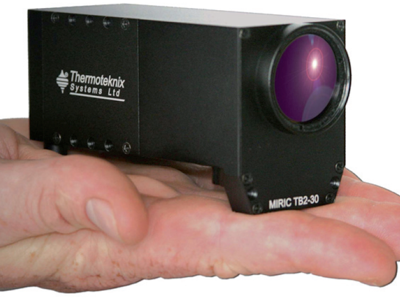Archive for February, 2010
Dr Richard Salisbury – “Infrared cameras and the LCROSS mission”
Thursday, February 4th, 2010
Thursday 4 February 2010
We don’t often get detailed background information on instruments that are carried in spacecraft, but this was put right in a fascinating talk by Richard Salisbury the CEO of Thermoteknix in Waterbeach. His company produces sophisticated infrared cameras that have attracted the attention of the space community in the USA. Richard explained how the cameras were built to withstand very high (for example in cement kilns) and very low temperatures, as well as vibrations and strong G forces. The latter were apparent in applications of their technology to Formula 1 and Indy racing cars. It was through Indy car racing that the camera’s potential for use in space was brought to the attention of the space physics department at Johns Hopkins University. After successful application to imaging exhaust debris in their rocket testing programme, the camera was fully certified for use in space. As a result, the near infrared imaging camera was chosen to be part of a suite of instruments on the LCROSS mission to crash a spent rocket into the Moon and image the resulting plume of debris. LCROSS (Lunar CRater Observation and Sensing Satellite) was designed to confirm observations by other spacecraft that hint at the presence of water on the Moon. The craft consisted of a rocket stage that had spent its fuel which crashed into a crater on a side of the moon in permanent shadow. A companion craft with imaging cameras for different wavelengths followed closely behind to record the impact and take spectroscopic measurements of the resulting debris before itself crashing into the Moon. Although the plume of debris was much smaller than expected (to the disappointment of many earth bound observers) the Thermoteknix camera recorded a clear flash of released heat from the lunar surface at the point of impact. Spectroscopic observations indicated that water was indeed present, along with a significant amount of sodium which is, as yet, unexplained.
There were a couple of messages from this talk: one was that scientific progress is often made when different fields come together in unexpected ways (cement kilns, racing cars and space!) The other is that costs of space missions can be kept relatively low by using commercially available instruments that have been extensively tested under extreme conditions, rather than developing new instruments from scratch.
This isn’t the last adventure of Thermoteknix in space as a camera will be visiting Saturn’s moon Titan in a few years time. We hope to be around long enough to hear what Richard Salisbury has to say in another visit!
February Meeting Reminder
Monday, February 1st, 2010

Monday 1st February 2010
Don’t forget that the February meeting is this coming Wednesday, 3rd February. Dr. Richard Salisbury from Thermoteknix will talk about thermal imaging cameras. Thermoteknix is a local company that built a camera for the NASA LCROSS mission to the Moon.
As usual the meeting will be held at 7.30pm in the Vinter Room, Vinter Close, Papworth Everard. Check out the Meetings page for a map.
BAA Out of London Meeting
Monday, February 1st, 2010

Monday, 1 February 2010
The British Astronomical Association is holding an ‘Out of London Meeting’ on Saturday 24th April, in Shrewsbury.
The theme of the meeting is ‘Cosmic Bangs and Explosions’, and the cost for the day is £12 for BAA members and £15 for non-members, which includes refreshments and a buffet lunch.
Speakers include:
- Dr Simon Chelkowski – “Gravitational Wave Astronomy”
- Professor Walter Dehnen – “Dark Matter”
- Dr Konstantinos Dimopoulos – “Where galaxies really come from”
- Dr Andrew Levan – “Finding the most distant objects in the Universe”
- Dr Sergei.Nayakshin – “Environment next to the Supermassive black hole in the centre of our Galaxy”
The day starts at 10:30, finishing at 18:00.
For more information contact the event organiser, Hazel Collett (meetings@britastro.org) or visit the BAA website. Closing Date for bookings is 6th April.